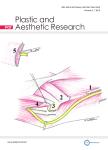Ethical challenges in vascularized composite allotransplantation of the lower extremity:lessons learned from hand transplantation and implications for the future
作者机构:Department of Orthopaedic SurgeryJohns Hopkins HospitalBaltimoreMD 21287USA Department of Orthopaedic SurgeryHospital of the University of PennsylvaniaPhiladelphiaPA 19106USA
出 版 物:《Plastic and Aesthetic Research》 (整形与美容研究(英文版))
年 卷 期:2022年第9卷第1期
页 面:196-212页
主 题:Vascularized composite allotransplantation(VCA) lower extremity ethics limb salvage replantation
摘 要:Vascularized composite allotransplantation(VCA)is a novel surgical practice that involves the transplantation of multiple tissue types as a functional unit without the primary purpose of extending *** VCA of the upper extremity is becoming increasingly accepted and performed,VCA of the lower extremity remains largely unexplored despite its acknowledged potential *** are inherent ethical concerns surrounding VCA that are dominated by a conflict between the principles of beneficence and *** primary question is whether the quality-of-life benefits to the patient outweigh the risks associated with long-term immunosuppression for a non-lifesaving *** addition,the ethical conversation involves concerns regarding informed consent,donor autonomy,patient privacy and public disclosure,patient selection,and unique considerations in the pediatric *** extremity VCA has additional ethical issues compared to upper extremity VCA,as current lower limb prostheses provide excellent,near baseline function that upper limb constructs have not yet been able to *** this review,we discuss the ethical challenges of lower extremity VCA using available evidence for the upper *** also compare ethical considerations of VCA of the extremity with other surgical alternatives to limb loss-namely,limb salvage and replantation-and address how the conversation may be altered with further advancements in immunosuppression and prosthetic technology.



